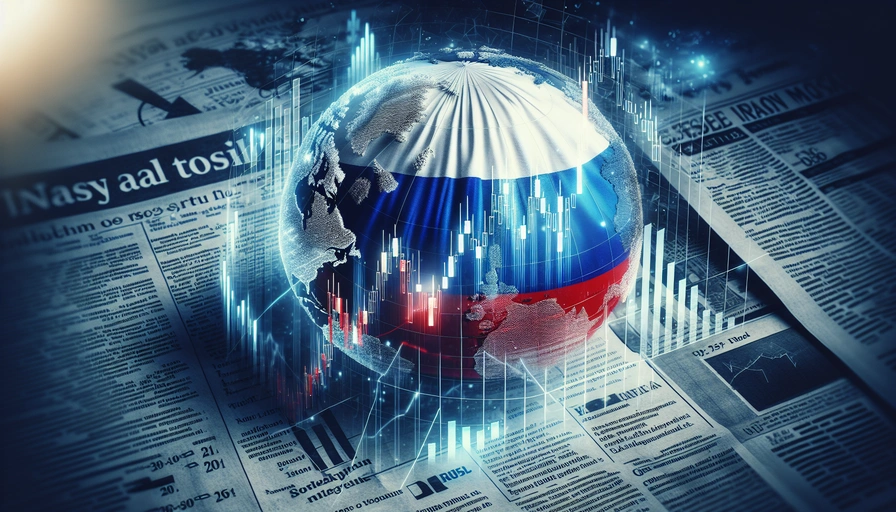In recent developments, Russia is grappling with new trade tariffs that have significant implications for its economy and international relations. These tariffs come at a time when the country is already dealing with various geopolitical challenges and economic pressures.
- US Tariffs Impact on Russian Economy: New US tariffs, although not directly impacting Russia, have negatively affected commodity prices, weakening the Russian ruble (RUB) and potentially increasing inflation. Analysts anticipate that the OFZ (government bonds) yield stabilization near current levels, but further RUB weakening is possible if the trade war escalates. The Central Bank of Russia’s next rate decision is on April 25, 2025.
-
EU Sanctions on Russian Infrastructure: EU sanctions targeting Russian port and airport infrastructure have had a crippling effect, impacting EU-registered entities even outside the EU. These sanctions cover eight Russian airports and five ports, prohibiting activities such as supplying equipment, software, materials, and services for infrastructure creation, repair, or maintenance. Financial transactions supporting infrastructure development are also banned, with exceptions for transactions involving natural gas, titanium, aluminum, copper, nickel, palladium, iron ore, pharmaceuticals, medical supplies, agricultural and food products, and nuclear safety.
-
Black Sea Initiative and Sanctions: Russia’s resumption of the Black Sea Initiative hinges on the EU lifting sanctions against a Russian agricultural bank. The Kremlin spokesperson, Dmitry Peskov, stated that the EU’s unwillingness to remove these sanctions indicates a lack of commitment to peace. This condition was part of the previous agreement acknowledged by the UN Secretary-General António Guterres.
-
Ruble’s Strength and Economic Impact: The Russian ruble has strengthened against the US dollar by almost 20% since the beginning of 2025, becoming one of the fastest-growing currencies globally. However, this appreciation is problematic for the Russian budget. The ruble’s strength is partly due to the election of Donald Trump, fostering optimism about improved US-Russia relations and potential sanctions relief. However, the sustainability of this growth is questionable, as positive factors are weakening, including stalled Ukraine war negotiations and falling oil prices.
-
Russia’s Energy Strategy to 2050: In response to these economic pressures, Russia’s government has approved an energy strategy extending to 2050. The strategy aims to ensure affordable and reliable energy for citizens and the economy, maximize export potential, enhance energy security, achieve technological sovereignty, and boost the competitiveness of the energy sector. The strategy includes accelerated oil and gas processing, expanding regional gasification, and guaranteeing sufficient domestic oil product supply at affordable prices.
In summary, Russia is navigating a complex landscape of new trade tariffs and sanctions that are impacting its economy and international relations. The country’s response includes strategic economic planning and efforts to strengthen its currency and energy sector. However, the long-term effects of these measures remain uncertain as geopolitical tensions continue to influence the global economic environment.

